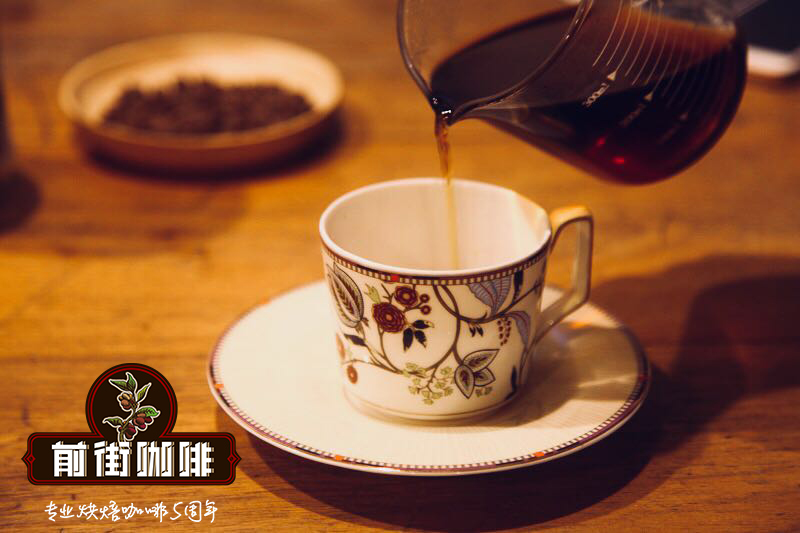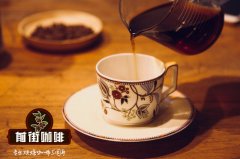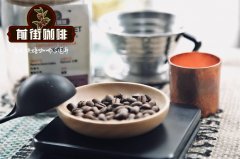As a major event in the industry, wce World Coffee Competition is held in detail.
Professional coffee knowledge exchange more coffee bean information please follow the coffee workshop (Wechat official account cafe_style)


The World Coffee tournament (WCE), headquartered in Dublin, Ireland, was originally founded by the American Fine Coffee Association (SCAA) and the European Fine Coffee Association (SCAE). It is a pioneer in hosting world-class coffee competitions.
There are six events organized by WCE at this stage: world baristas Competition WBC / World Coffee Brewing Competition WBrC / World Coffee draw Competition WLAC / World Coffee Spirits Competition WCIGS / World Cup Tester Competition WCTC / World Coffee roasting Competition WCRC in addition to organizing these six events, WCE also operates other events. For example: Re:Verb Coffee Forum / All-Stars all-Star event (showfeature) / the Espresso Bar Italian Condenser Bar (showfeature) / the Brew Bar brewing Bar (showfeature).

The World Barista Competition (WBC) focuses on promoting the quality of espresso and the professional skills of baristas. Contestants are required to make 4 cups of espresso, 4 cups of milk and 4 cups of homemade coffee drinks in 15 minutes. The judges will judge the contestants in terms of drink flavor, professional skills, cleanliness, innovation, overall performance and so on.
WBC has a series of changes in 2017, including modular site layout, simultaneous preliminaries and improved technical judgment. When these changes were implemented in Seoul in November 2017, the overall response was very positive, and the event was a good opportunity to study the impact and possibility of the new changes on contestants, referees, volunteers and employees.
The 2018 WBC was held in Amsterdam in June, resulting in a slight shortening of the national season. With this in mind, in order to give participants time to more fully explore the new opportunities brought about by these changes, only minor updates have been made to the rules and regulations of WBC in 2018, with an emphasis on improving the experience of all participants.

The World Coffee Brewing Competition (WBrC) is a competition for coffee brewing skills, which aims to improve the professional level of handmade coffee extraction skills and services. Contestants can use different coffee brewing tools, such as drip filter pot, French pressure pot, siphon pot, etc. The taste and service of coffee will be judged.
The competition consists of two rounds: the preliminary round and the final. in the preliminary round, contestants are required to complete two coffee services: a designated brewing and an optional brewing. For designated brewing, contestants are required to make three full coffee drinks from coffee beans provided by the organizers. For optional brewing, contestants can choose to use any coffee beans and must also perform their preparation process (while brewing coffee While introducing the origin of their coffee beans, roasting information and brewing plans, etc.). The six contestants with the highest scores in the first round will continue to participate in the final composed of self-selected brewing. The first contestant in the final will win the World Coffee Brewing Competition.

The World draw Competition (WLAC) is a competitive platform for the performance of milk art. Baristas need to use the classic combination of espresso and milk to create different patterns.
In the preliminary stage, the barista makes a creative latte at the art bar and then moves to the WLAC stage to create two identical Free-pour lattes and two identical Designer lattes (allows carving and decoration). Combined with the scores from the art bar and the stage, the top 12 are eligible for the semi-finals. Contestants are required to make two different sets of Free-pour lattes and a set of Free-pour macchiato. The top six semi-final contestants are eligible to participate in the final round, and the contestants continue to make two different sets of Free
Pour latte pattern, and a set of matching Designer lattes. The player with the highest score in the last round will become the champion of the World pull Flower Competition.
Baristas are graded based on visual attributes, creativity, pairs of the same pattern, reference pattern and overall performance.

The World Coffee Spirits Competition (World Coffee in Good Spirits Championship,WCIGS) examines the different tastes and flavors created by players blending coffee into different wines.
From traditional Irish Coffee (including whisky and coffee) to unique cocktail combinations, the competition highlights the blending skills of baristas and bartenders to make coffee and alcohol blend perfectly.
In the preliminaries, contestants make four drinks: two identical hot / warm coffee and alcoholic beverages And two identical cold coffee and alcoholic beverages. The six contestants with the highest scores in the qualifying competition will take part in the final round. The final round requires contestants to make two kinds of Irish Coffee and two kinds of coffee and alcohol-based Designer drinks. The player with the highest score in the final round will become the champion of the World Coffee Spirits Competition.

The World Coffee Cup Test Competition (WCTC) examines the contestants' ability to distinguish taste and the role of display speed, skill and accuracy in distinguishing the taste differences of fine coffee.
Coffee from all over the world has many different taste characteristics, and for cup testers, the goal of this competition is to distinguish different coffees. in the competition, three cups of coffee will be placed in a triangle, of which two are the same coffee and one is different. contestants need to use smell, taste, attention and empirical skills Identify a different cup as soon as possible. Place a total of 8 triangles in each round. The top eight players who choose the right answer quickly enter the next semi-final. then the top four will compete in the finals again to select the winner of the next World Cup tester contest.

The World Coffee roasting Competition (WCRC) made its debut in Nice, France in 2013. In this three-stage competition, contestants will be evaluated on their assessment of the quality of raw coffee (coffee grading), the development of roasting characteristics that best highlight the ideal characteristics of coffee, and the best cup test quality of roasted coffee.
Cezve (also known as ibrik) is a pot specially designed to make special flavor coffee. It is mainly consumed in parts of Eastern Europe, the Middle East and North Africa. Its main body can be made of metal, brass, copper or ceramics. It has a unique long handle and edge design for serving coffee.
This event shows Cezve or Ibrik making handmade coffee and setting it up in a competition to promote cultural traditions. In this competition, participants are encouraged to bring their own style or cultural elements to their performances to show what is the oldest way of making coffee.
Important Notice :
前街咖啡 FrontStreet Coffee has moved to new addredd:
FrontStreet Coffee Address: 315,Donghua East Road,GuangZhou
Tel:020 38364473
- Prev

As a major event in the industry, wce World Coffee Competition is held in detail.
Coffee Workshop (Wechat official account cafe_style) World Coffee tournament Organization (WCE), headquartered in Dublin, Ireland, was founded by the Fine Coffee Association of America (SCAA) and the European Association of Fine Coffee (SCAE) and is a pioneer in hosting world-class coffee events. Organized by WCE at the present stage
- Next

What if you work in coffee? How to be a professional barista
Professional coffee knowledge exchange more coffee bean information Please pay attention to the coffee workshop (Wechat official account cafe_style) there are thousands of reasons for engaging in the coffee industry, but how to better develop in the coffee industry has become a confusion of many partners, through this article, I hope it can help you better move towards your career. First, how to enter the coffee industry to talk about this topic, I believe a lot
Related
- Can lightly roasted coffee beans be used to extract espresso? How finely should you grind high-quality coffee beans to make Italian latte?
- What is the difference between the world's top rose summer coffee and Yejia Shefi? What are the flavor characteristics of Yega Shefi coffee and Panama rose summer?
- The ceremony is full! Starbucks starts to cut the ribbon at a complimentary coffee station?!
- A whole Michelin meal?! Lucky launches the new "Small Butter Apple Crispy Latte"
- Three tips for adjusting espresso on rainy days! Quickly find the right water temperature, powder, and grinding ratio for espresso!
- How much hot water does it take to brew hanging ear coffee? How does it taste best? Can hot water from the water dispenser be used to make ear drip coffee?
- What grade does Jamaica Blue Mountain No. 1 coffee belong to and how to drink it better? What is the highest grade of Blue Mountain coffee for coffee aristocrats?
- What are the flavor characteristics of the world-famous coffee Blue Mountain No. 1 Golden Mantelin? What are the characteristics of deep-roasted bitter coffee?
- Can I make coffee a second time in an Italian hand-brewed mocha pot? Why can't coffee be brewed several times like tea leaves?
- Hand-brewed coffee flows with a knife and a tornado. How to brew it? What is the proportion of grinding water and water temperature divided into?

